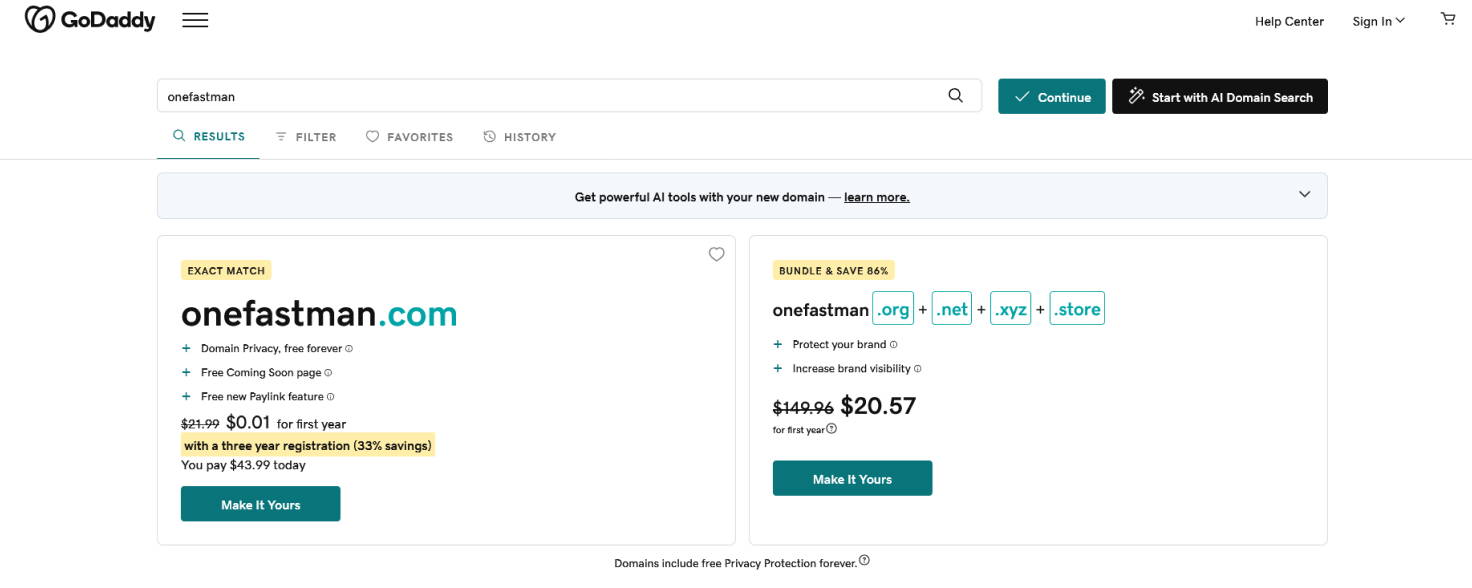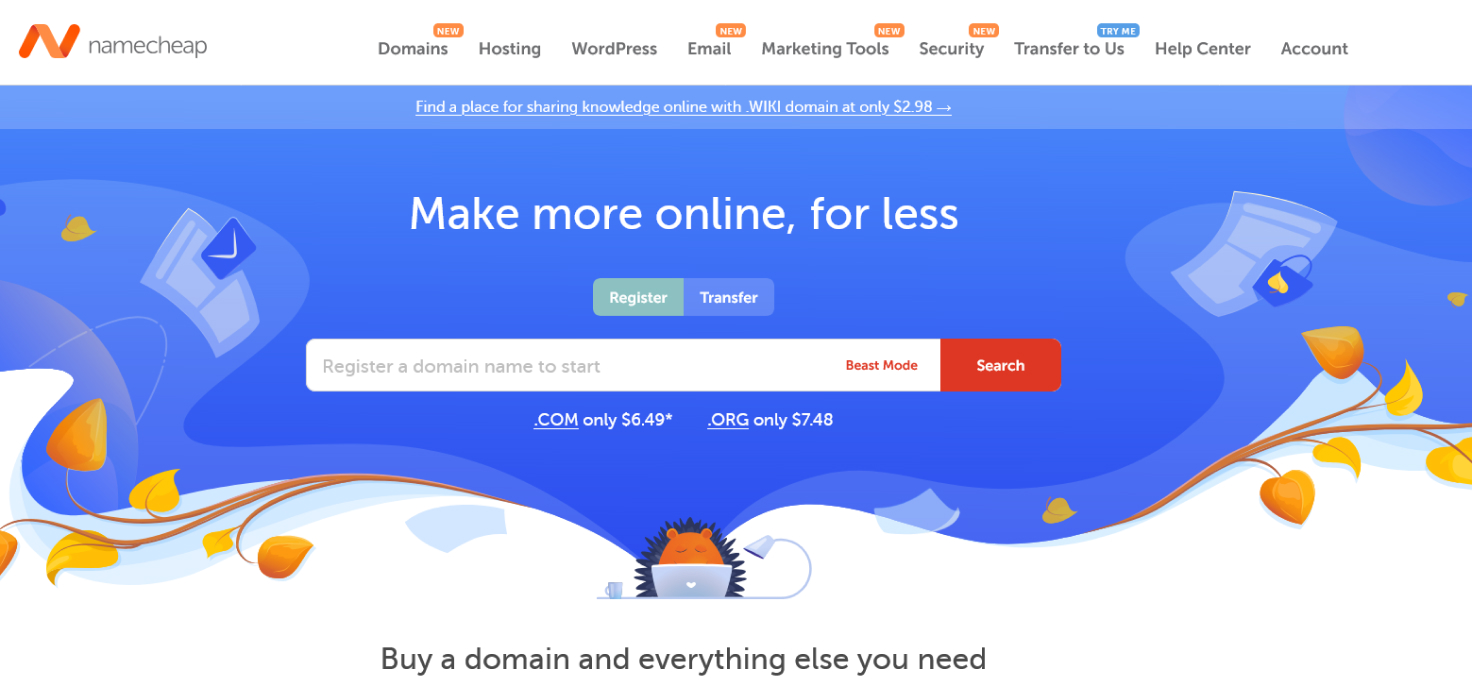Many first-time domain buyers assume that purchasing a domain name means owning it forever, like buying real estate. In reality, domain registration is a lease — you’re paying for exclusive use rights for a set period (typically 1-10 years) that must be renewed to maintain control. ICANN, the organization overseeing domain names, prohibits permanent registration to prevent monopolization and maintain an open marketplace. However, with auto-renewal, multi-year registration terms, and proper domain management practices, you can effectively maintain ownership of your domain name indefinitely. This guide explains how domain ownership works and the strategies to ensure you never lose a valuable domain.
One of the most common questions we are asked is, ‘Can I own my domain name forever?’ While the simple answer is ‘no’, Name Experts director Joe Uddeme explains a reliable workaround...
While it’s not possible to buy a domain name forever in the classical sense, there are ways to ensure long-term control over your domain.
Website registration typically involves leasing a domain name for a specific period, usually between one to ten years. However, some registrars offer lifetime domain registration options or auto-renewal features that can help you maintain ownership for an extended period to buy a domain name.
By opting for these services, you can avoid the hassle of frequent renewals and ensure that your domain name remains yours for as long as you need it. This approach provides peace of mind and stability for your online presence, allowing you to focus on building and growing your website without worrying about losing your domain. It’s an especially important consideration when you want to buy a premium domain name.
Key Takeaways
- Understand the truth about “ownership” of a domain name
- Know your rights and responsibilities as a domain name owner
- Learn about settings and protocols that can help protect you
What is domain name ownership?
Domain name ownership refers to having control over a domain name (such as max.com) after registering it through a domain registrar.
Although “ownership” is commonly used to describe this control, it’s technically a lease for a specified period (usually one to ten years). During this period, the “owner” has exclusive rights to use and manage the asset, including directing it to specific websites, emails, or other services. You can register using domain registration sites like GoDaddy to buy a domain name.

What Domain Name Ownership Includes
Exclusive Use: As the owner, you have the exclusive right to use that domain name for your website, email addresses, or other internet services in the domain name space.
Control Over Domain Settings: Owners can adjust key settings, such as Domain Name System (DNS) records, to point the domain to a specific web host or email service provider.
Ability to Sell or Transfer: Domain ownership gives you the right to sell the domain or transfer it to another party.
Privacy and Security Settings: Owners can control privacy settings (such as WHOIS privacy) and secure the domain with features like domain locking to prevent unauthorized transfers.
Renewal Obligations: Owners must renew the registration periodically to maintain ownership. If the registration is not renewed, ownership can be lost, and the domain can be made available for others to purchase. Pay close attention to this!
Rights and Responsibilities of Domain Ownership
Renewal: Owners must keep track of the domain’s expiration date and renew it to maintain register control and ownership.
Compliance: The domain must comply with the terms of service of the domain registrar and relevant legal requirements.
Transfer: You can transfer the domain to another registrar or sell it to another person.
In summary, while domain ownership isn’t permanent unless continually renewed, it gives you full control and usage rights over the domain for the duration of the registration period.

What is my Domain Worth?
Understanding the Registration Process
Website acquisition is the process of securing a unique web address, also known as a domain name (such as a .com name), for use on the internet. When you buy a digital asset, you need to register the asset through a registrar.
This crucial step involves registering a domain name with a registrar, such as GoDaddy or Namecheap, for a specific period, typically ranging from 1 to 10 years.
ICANN oversees the regulations pertaining to domain registrations, ensuring that domain names are assigned for limited periods to promote an open market and prevent monopolization.
Domain procurement is essential for building a website or online business, as it allows individuals and organizations to establish a strong online presence.
By securing a domain name, you ensure that your website has a unique and recognizable address on the internet, although you cannot own a domain permanently.
Risks and Considerations
- When registering a domain name, individuals and organizations should be aware of several risks.
- To mitigate these risks, it’s essential to understand the terms and conditions when you buy a domain name. These are especially pertinent when buying a premium domain name.
One significant risk is domain name expiration, which can result in the loss of the asset and your online presence. Another risk is domain name hijacking, where unauthorized parties gain control of your domain.
Make sure you are clear about any fees or penalties associated with domain name transfer or renewal. Additionally, consider using a backup payment option to ensure that your domain name registration is always up-to-date. By being aware of these risks and taking proactive measures, you can protect your website name and maintain a strong online presence.
About the author
Joe Uddeme is Director and Principal of Name Experts, one of the world’s leading domain name brokerage services. He has overseen domain name sales and acquisitions totaling more than $150 million and is renowned worldwide as a go-to expert in buying and selling premium domains. Joe’s domain portfolio management services help ensure clients stay on top of their digital assets. Contact him at: [email protected]
Subscribe for More Domain Buying & Selling Advice
Acquired a Premium Domain? Let Us Help You Protect It.
Name Experts provides domain portfolio management services to ensure your valuable domains never expire, transfer, or fall into the wrong hands. Safeguard your digital assets with expert oversight.
Portfolio ManagementFrequently Asked Questions
No, you cannot buy a domain name permanently. Domain registration works as a renewable lease, not a permanent purchase. You pay a registrar for exclusive use rights for a set period (1-10 years), then must renew the registration to maintain control. ICANN, the governing body for domain names, established this system to prevent monopolization and ensure fair access to the domain namespace. However, by enabling auto-renewal and maintaining current payment methods, you can effectively hold a domain indefinitely.
When a domain registration expires, it goes through several stages before becoming publicly available. First, there's a grace period (typically 20-30 days) where you can renew at the standard rate. Next comes a redemption period (30-60 days) where renewal is possible but at a significantly higher fee ($80-$200+). After that, the domain enters a pending delete phase (5 days) and then drops to the open market where anyone can register it. During expiration, your website goes offline and email stops working immediately.
Enable auto-renewal on every domain you own -- this is the single most important protection against accidental loss. Keep your payment information current with your registrar so renewals process successfully. Register domains for the maximum term (10 years) to reduce renewal frequency. Use a dedicated email address for registrar communications and check it regularly. Consider domain lock (registrar lock and registry lock) to prevent unauthorized transfers. For critical business domains, set calendar reminders 90 days before expiration as an additional safety net.
Most domain registrars allow registration terms of 1 to 10 years for standard extensions like .com, .net, and .org. Some newer TLDs and country-code domains may have different maximum terms. Registering for longer periods often provides per-year discounts and reduces the risk of accidental expiration. While no registrar offers truly permanent registration, many provide indefinite auto-renewal that effectively maintains your domain as long as payment methods remain valid.
Registering a domain for 10 years makes sense for domains central to your business or brand. Benefits include lower per-year costs through bulk discounts, reduced risk of expiration, and a potential minor SEO signal showing long-term commitment. However, for speculative or experimental domains, a 1-2 year registration is more cost-effective. If you're investing in a premium domain name worth thousands of dollars, the relatively small additional cost of a 10-year registration is excellent insurance against losing a far more valuable asset.


